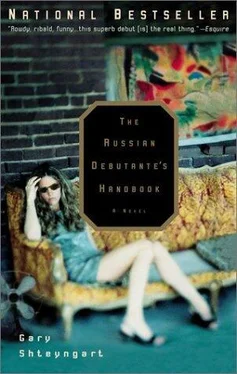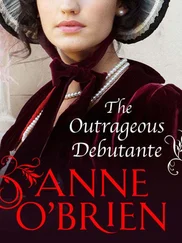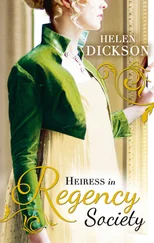Gary Shteyngart - The Russian Debutante's Handbook
Здесь есть возможность читать онлайн «Gary Shteyngart - The Russian Debutante's Handbook» весь текст электронной книги совершенно бесплатно (целиком полную версию без сокращений). В некоторых случаях можно слушать аудио, скачать через торрент в формате fb2 и присутствует краткое содержание. Город: New York, Год выпуска: 2003, ISBN: 2003, Издательство: Riverhead Books, Жанр: Современная проза, Юмористическая проза, на английском языке. Описание произведения, (предисловие) а так же отзывы посетителей доступны на портале библиотеки ЛибКат.
- Название:The Russian Debutante's Handbook
- Автор:
- Издательство:Riverhead Books
- Жанр:
- Год:2003
- Город:New York
- ISBN:0-7865-4177-6
- Рейтинг книги:4 / 5. Голосов: 1
-
Избранное:Добавить в избранное
- Отзывы:
-
Ваша оценка:
- 80
- 1
- 2
- 3
- 4
- 5
The Russian Debutante's Handbook: краткое содержание, описание и аннотация
Предлагаем к чтению аннотацию, описание, краткое содержание или предисловие (зависит от того, что написал сам автор книги «The Russian Debutante's Handbook»). Если вы не нашли необходимую информацию о книге — напишите в комментариях, мы постараемся отыскать её.
and
. The Russian Debutante’s Handbook Bursting with wit, humor, and rare insight,
is both a highly imaginative romp and a serious exploration of what it means to be an immigrant in America.
The Russian Debutante's Handbook — читать онлайн бесплатно полную книгу (весь текст) целиком
Ниже представлен текст книги, разбитый по страницам. Система сохранения места последней прочитанной страницы, позволяет с удобством читать онлайн бесплатно книгу «The Russian Debutante's Handbook», без необходимости каждый раз заново искать на чём Вы остановились. Поставьте закладку, и сможете в любой момент перейти на страницу, на которой закончили чтение.
Интервал:
Закладка:
The tram had crossed the river and had started mountain-climbing. They had barely reached the middle plateau of Repin Hill, where the Austrians were building a family entertainment complex around a cartoon character named Günter Goose, when the tram suddenly shuddered to a halt.
Outside the tram window, two heads bobbed in the night, their scalps as white as the moon, the few randomly sprouting hairs passable for the outlines of craters and other such lunar geography. Two skinheads, their relative height and size forming approximately the ratio between Abbott and Costello, got on board, their many chains jangling against their belt buckles, which were replicas of Confederate flags. They were laughing and pretending to punch each other, managing in the interim of their playfulness to swig from bottles of Becherovka liquor, so that Vladimir first assumed they were Stolovan gays who had mistaken the Confederate flag for just another symbol of Americana. After all, the bald look had long become de rigueur on Christopher Street.
But when they saw Vladimir and then turned to Cohen, the laughter stopped. Two pairs of fists appeared, and in the overabundant light of the tram their naked scalps, acne, battle scars, and twitching sneers formed a distinct roadmap of adolescent hatred.
There was a crash against the window to Vladimir’s right and immediately there was alcohol in his eyes, shards of glass stinging against his skin like so many little shaving accidents, and the unmistakable smell of the pumpkin liquor; the short, fat one must have thrown his bottle. Vladimir couldn’t open his eyes. When he tried, there was only the muddled indistinction of eyedrops just applied and, anyway, he really didn’t want to see. In the darkness, an amorphous series of thoughts were coalescing around the concepts of pain, injustice, and revenge but what it all came down to was the therapeutic qualities of his grandmother’s coarse, old Russian pillow—hard, but yielding—on which he had first practiced his amorous ways. That was the thought of the moment. With the instinctual, life-affirming panic submerged in vodka and Unesko beer, only the sadness concerning the impending loss of life and limb—this sadness that should have emerged only as an afterthought—rose to the surface. It had to have been so, because Vladimir said only one word in response to the bottle attack. “Morgan,” he said, and he said it too quietly for anyone to hear. He could see her, for some reason, carrying her fugitive cat across the courtyard, cradling the rebellious animal like a mother all too ready to forgive.
“Auslander raus!” screamed the short one. “Raus! Raus!”
Cohen had Vladimir by the hand, his own palm cold and wet. Vladimir was dragged up to his feet and then he hit what must have been the sharp edge of a tram seat, but he tried hard not to lose his balance, for, at that moment, the reality that he was his parents’ only child, and that his mother and father could not possibly go on with him dead dawned on Vladimir. And so, finally, he panicked—an eye-opening panic that showed him quite clearly the tram steps, the still-open door, and the black asphalt beyond.
“Foreigner out!” shouted the other skinhead in English; between them they had clearly mastered the right words in the right European languages. “Back to Turk-land!”
The wind gusting off the river slammed into their backs like a concerned friend leading the way. Behind them they could hear the laughter of their assailants as well as that of the newly awakened factory workers, and the fading, patient voice of the tram recording: “Please desist entering and exiting, the doors are about to close.”
They ran broken-field past the parked Fiats and randomly lit street lamps, toward the familiar darkened hulk of the castle in the far distance. They ran without looking at one another. Several blocks later, Vladimir’s sense of panic gave out, and the sadness returned and physically manifested itself in the shape of a giant ball of mucus rising up through his stomach and lungs, past his racing heart. His feet folded beneath him, rather gracefully, and he wound up first on his knees, then on his palms, and then twisted over on his back.
VLADIMIR RECOVERED TOthe sound of a great automotive roar. Two police cars beaming electric-blue and red against the valley of pink Baroque where Cohen and Vladimir had come to rest had pulled up to within inches of Vladimir’s snout, and the boys were immediately surrounded by sweaty giants. They could see the outlines of night sticks bouncing against trousers, smell the beer and pork-loin breath overpowering the street’s coal-and-diesel reek, and hear the laughter, the great rumbling free-for-all of the Slav policeman at three in the morning.
Yes, they were a merry lot, prancing atop of our fallen heroes while the strobe lights of their cars reinforced the carnivalesque atmosphere—it seemed as if a rave, the very one František had been hoping to conjure up a few hours earlier, was really underfoot.
Vladimir lay crumpled in a nest he had instinctively made out of his parka and heavy sweater. “Budu Jasem Americanko,” he halfheartedly pleaded in the only Stolovan he knew. “I am an American.”
This only contributed to the general merriment. An additional squadron of police Trabants pulled out from the converging side streets and a dozen more officers joined the ranks. In no time at all, the latecomers were chanting the expatriate mantra: “Budu Jasem Americanko! Budu Jasem Americanko!”
A few had taken off their caps and had started humming the opening bars of “The Star-Spangled Banner,” picked up from years of watching the Olympics.
“American businessman,” Vladimir clarified, but even that did not raise his estimation in the eyes of the law. The policemen’s ball continued with reinforcements arriving by the minute until it appeared that every member of the municipal forces assigned to night duty was involved. Some even brought cameras and Vladimir and Cohen soon found themselves under a barrage of photo flashes; a bottle of Stoli was thrust into Cohen’s limp hands and he modeled it half-consciously while muttering all the Stolovan he had ever learned: “I’m an American… I write poetry… I like it here… Two beers, please, and we’ll split the trout…”
And then very quickly there was the screech of walkie-talkies, superiors shouting orders, and car doors being slammed. Something was happening somewhere else and the boulevard began to clear. The last to go, a young recruit in an oversized red-and-gold cap initialed with the fearsome Stolovan lion, came by to ruffle Cohen’s hair and yanked the bottle out of his arms. “Sorry, American friend,” he said. “Stoli cost money.” He also did something nice: he picked up the boys, one in each arm, and moved them off the tram rails (ah, so that had been the sharp pain in Vladimir’s back) and onto the sidewalk. “Bye, businessman,” he said to Vladimir, his sincere little mustache twitching as he spoke, then got into his Trabant and took off, siren blaring into the terminally disturbed night.
IF THE NIGHThad ended right there, that would have been one thing. But no sooner had the Politzia left and Vladimir and Cohen started breathing again than an additional convoy of automobiles appeared to take their space, this time a trail of BMWs flanked on both ends by American Jeeps.
Gusev.
He scrambled out from the flagship car, overbundled for the weather in his shiny full-length nutria coat, looking like a deposed king fleeing an onrush of peasants with guns, or like a bald disco promoter past his prime. “Disgrace!” he shouted.
Behind him were several men, all former Interior Ministry troops, dressed the part in fatigues and night goggles. It must have been that kind of night for them.
Читать дальшеИнтервал:
Закладка:
Похожие книги на «The Russian Debutante's Handbook»
Представляем Вашему вниманию похожие книги на «The Russian Debutante's Handbook» списком для выбора. Мы отобрали схожую по названию и смыслу литературу в надежде предоставить читателям больше вариантов отыскать новые, интересные, ещё непрочитанные произведения.
Обсуждение, отзывы о книге «The Russian Debutante's Handbook» и просто собственные мнения читателей. Оставьте ваши комментарии, напишите, что Вы думаете о произведении, его смысле или главных героях. Укажите что конкретно понравилось, а что нет, и почему Вы так считаете.












